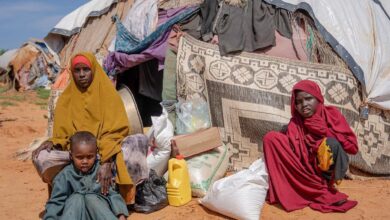
The humanitarian situation in Sudan is beyond description — a catastrophic and unprecedented tragedy, especially in the conflict-ridden regions such as Kordofan.
According to Sudanese journalist Ismail Mohamed Ali, during the two-year-long war, all aspects of life have come to a standstill across the country. Even areas once considered safe have faced severe hardships, including food shortages, caused by factory shutdowns, crop failures, and the destruction of arable land — as seen clearly in Gezira State, following the Rapid Support Forces’ (RSF) takeover. He warns that the lives of all Sudanese are now in grave danger.
He adds that although all Sudanese are suffering, the most severe and tragic hardship is that of the people of Darfur and El Fasher, particularly El Fasher, which endured a siege lasting more than 50 days.
More than 177,000 residents who remained in the city until its fall faced unimaginable conditions — some were forced to eat animal fodder, while others boiled and ate cowhides to survive. The RSF bombarded El Fasher indiscriminately, destroying residential areas, markets, and even drinking water sources, exposing civilians — especially pregnant women, children, and the elderly — to deadly diseases.
Those who attempted to flee were often arrested or killed, while women faced rape and sexual violence.
Perhaps the most horrific aspect of Sudan’s war, the journalist notes, is that both warring sides have used hunger as a weapon — particularly the RSF, which has committed systematic torture and abuses, many of which were captured in videos filmed by its own fighters in El Fasher — footage that has shocked Sudanese society with its brutality.
Now, after the fall of El Fasher, the situation remains dire and devastating, not only there but also in Kordofan, where intense battles continue to rage across multiple areas.




